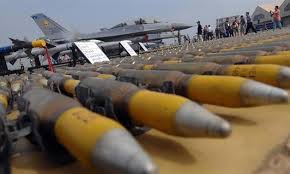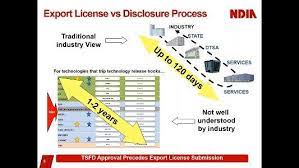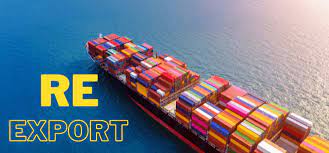Foreign Military Sales (FMS) programs have been a cornerstone of international defense cooperation, enhancing the security capabilities of allied nations and strengthening geopolitical alliances. These programs, facilitated by the U.S. government, provide foreign allies with defense articles, services, and training. Here, we explore some notable case studies of successful FMS programs, illustrating their significant impact… Read More
Navigating Compliance: Understanding ITAR Recordkeeping & Reporting Requirements
In today’s interconnected world, international trade in defense-related goods and services plays a vital role in national security and global stability. To safeguard sensitive technologies and prevent their unauthorized transfer to foreign entities or adversaries, the United States government has implemented stringent regulations under the International Traffic in Arms Regulations (ITAR). Among these regulations are… Read More
How to Determine if a Commodity is Not “Specially Designed”
Navigating the intricate web of regulations surrounding international trade in defense-related articles and services can be daunting, especially when it comes to compliance with the International Traffic in Arms Regulations (ITAR). Among the various provisions outlined in ITAR, the concept of items not being “specially designed” holds significant weight. Determining whether a commodity falls within… Read More
Navigating the ITAR: Understanding the Different Kinds of Agreements
In the realm of international trade and security, the International Traffic in Arms Regulations (ITAR) plays a crucial role in governing the export and import of defense-related articles and services. For companies operating in the defense industry or dealing with sensitive technologies, compliance with ITAR is paramount. Central to ITAR compliance are various types of… Read More
Ensuring National Security: The Importance of Proviso Compliance on ITAR Export Licenses
In the intricate world of international trade, particularly in the realm of defense-related technologies, adherence to regulations is paramount to safeguard national security interests. Among the key regulations governing such trade is the International Traffic in Arms Regulations (ITAR), administered by the United States Department of State. Within ITAR, export licenses play a crucial role,… Read More
A Step-by-Step Guide: Registering as an Exporter under ITAR with DDTC
Introduction: For companies engaged in the export of defense-related articles and services, compliance with the International Traffic in Arms Regulations (ITAR) is not just a legal requirement but a crucial aspect of doing business responsibly. One of the fundamental steps in ensuring ITAR compliance is registering as an exporter with the U.S. Department of State’s… Read More
Understanding Technology Security & Foreign Disclosure (TSFD) Pipes: A Comprehensive Guide
In today’s interconnected world, where technology plays a pivotal role in nearly every aspect of our lives, security is paramount. This is especially true when it comes to sensitive technologies that have the potential to impact national security and international relations. One crucial mechanism in managing this delicate balance is through Technology Security & Foreign… Read More
Understanding Retransfer and Reexport Requirements in ITAR
In the world of international trade, particularly in industries dealing with defense articles and services, compliance with regulations is crucial. One such set of regulations that govern the export and import of defense-related items is the International Traffic in Arms Regulations (ITAR), administered by the U.S. Department of State. Among the many provisions within ITAR,… Read More
A Comprehensive Guide to Implementing DDTC’s ITAR Compliance Program Guidelines
Introduction: In the ever-evolving landscape of international trade and national security, the International Traffic in Arms Regulations (ITAR) plays a crucial role in safeguarding sensitive defense-related technologies. Administered by the U.S. Department of State’s Directorate of Defense Trade Controls (DDTC), ITAR compliance is essential for companies involved in the export and import of defense articles… Read More
Crafting an Effective Voluntary Self-Disclosure for ITAR Violations: A Guide to Transparency and Compliance
Introduction: In the complex world of international trade, compliance is paramount. For businesses engaged in the export of defense-related technologies, such as those covered by the International Traffic in Arms Regulations (ITAR), inadvertent violations can occur. When such violations are identified, voluntarily reporting them through a well-crafted Voluntary Self-Disclosure (VSD) is a crucial step towards… Read More









